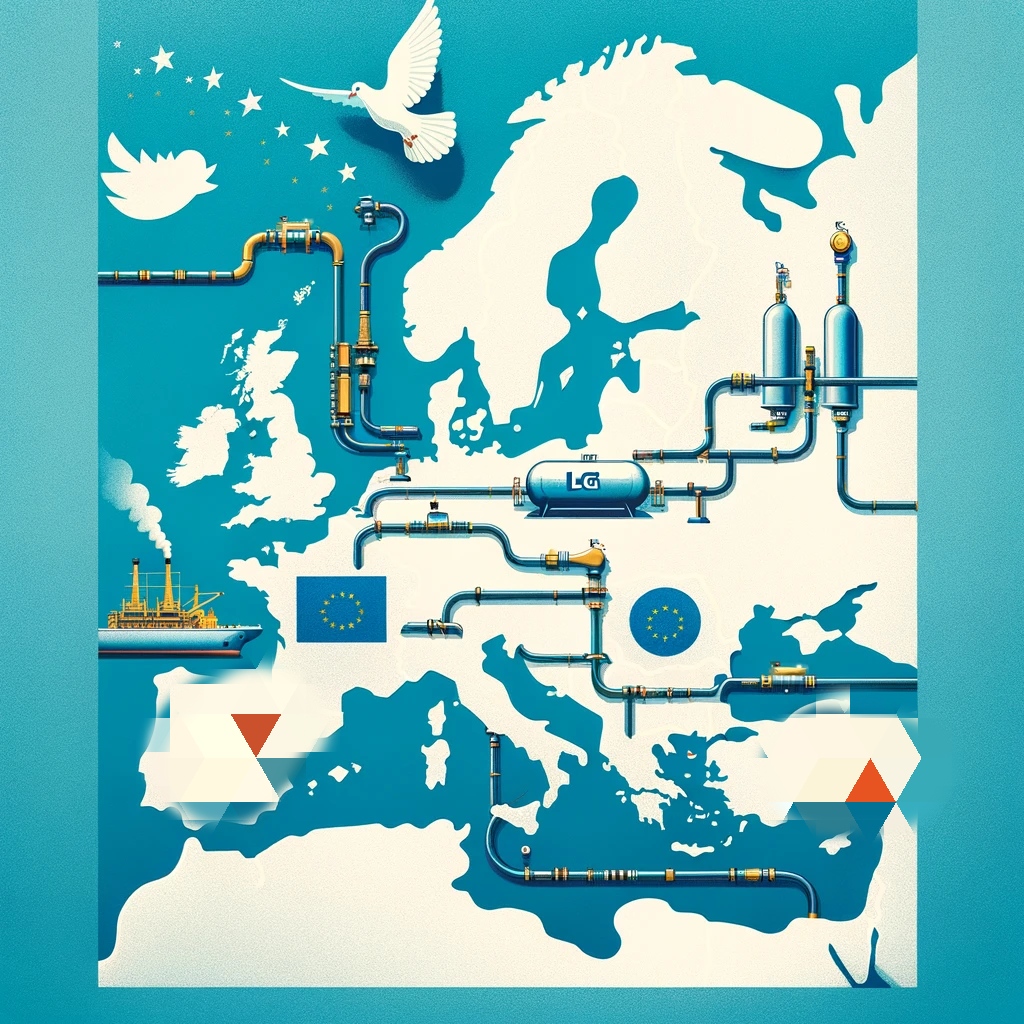In the wake of the ongoing conflict in Ukraine, Europe faces an unprecedented gas crisis, highlighting the continent’s vulnerability due to its heavy reliance on Russian gas supplies. This situation has propelled countries in North Africa, particularly Algeria, and those in the Gulf region, into a spotlight, underscoring their potential to serve as alternative energy suppliers and stabilize the global gas market. This article explores the critical role these regions can play in alleviating Europe’s gas shortage while emphasizing the importance of maintaining stability in these countries to ensure global economic security.
The Vital Role of North Africa and Algeria
North Africa, with Algeria at the forefront, possesses significant natural gas reserves that can provide a much-needed alternative to Russian gas for Europe. Algeria, the largest country in Africa, is the third-largest supplier of natural gas to Europe, following Russia and Norway. The country’s strategic location, coupled with its existing pipeline infrastructure, such as the Trans-Mediterranean, Medgaz, and Galsi pipelines, positions it as a key player in the effort to diversify Europe’s gas sources.
In addition to Algeria, countries like Egypt and Libya have untapped gas reserves that, if fully developed and utilized, could further contribute to the European energy market. Egypt’s recent gas discoveries, particularly in the Zohr field, the largest in the Mediterranean, exemplify the region’s potential. However, political instability and infrastructural challenges have hindered the full exploitation of these resources.
The Contribution of the Gulf States
The Gulf States, renowned for their vast oil reserves, also play a significant role in the global gas market. Qatar, one of the world’s largest LNG producers, has been pivotal in offering flexible LNG supply solutions to Europe amid the crisis. The country’s capacity to increase LNG production and its extensive network of LNG terminals globally allow for a swift response to fluctuations in the European gas demand.
Similarly, the United Arab Emirates (UAE) and Saudi Arabia have embarked on ambitious plans to develop their natural gas and renewable energy sectors. These initiatives are not only aimed at satisfying domestic energy needs and reducing carbon footprints but also at becoming key players in the international energy market, providing alternative energy sources to traditional markets.
Maintaining Stability for Global Economic Security
The potential of North Africa, Algeria, and the Gulf States to mitigate Europe’s gas crisis hinges on the stability of these regions. Political unrest, infrastructural deficiencies, and regulatory hurdles can significantly impact their ability to increase gas production and exports. For instance, Algeria’s energy sector has faced challenges due to bureaucratic inefficiencies and the need for foreign investment and technology to develop new gas fields.
Moreover, the stability of Libya, with Africa’s largest proven oil reserves, is crucial for the energy market. The country’s ongoing conflict and political fragmentation pose risks to its energy production and, by extension, to global energy security. Therefore, international cooperation and support for governance reforms, infrastructure development, and peace-building efforts in these countries are essential.
The Way Forward
As Europe seeks to reduce its dependence on Russian gas, the role of North Africa, Algeria, and the Gulf States becomes increasingly significant. Expanding the energy partnership with these regions not only offers a solution to the immediate crisis but also aligns with the long-term objectives of energy diversification and transition to cleaner energy sources.
Investments in infrastructure, technology transfer, and collaborative projects can enhance the gas production capabilities of these regions, ensuring a steady and reliable supply to Europe. Additionally, supporting stability and sustainable development in North Africa and the Gulf can safeguard these critical energy corridors, promoting global economic security.
In conclusion, the gas crisis in Europe, exacerbated by the conflict in Ukraine, underscores the interconnectedness of global energy markets and the importance of diversifying energy sources. North Africa, Algeria, and the Gulf States are poised to play a pivotal role in this diversification effort. However, realizing this potential requires a concerted focus on maintaining stability in these regions, fostering an environment conducive to investment, and leveraging their strategic geographic and resource advantages. As the world navigates these turbulent times, the collaboration between Europe, North Africa, Algeria, and the Gulf States could herald a new era of energy security and economic stability.
